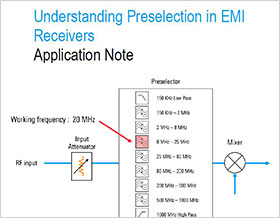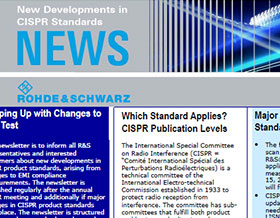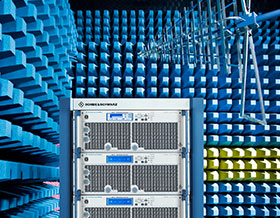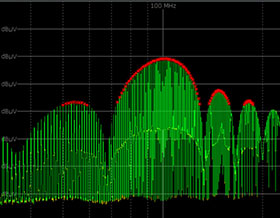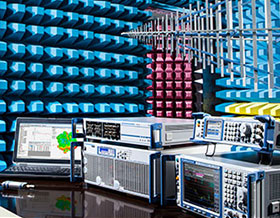EMC Resources
Understanding Pre-Selection in EMI Receivers
Learn about the importance of preselection during EMI testing. In this comprehensive application note, you’ll learn more about mixers and how they benefit your testing needs. You’ll also go in-depth around preselection: what is it, why is it important, and most importantly you’ll discover how applying this new information can save you time and money during your EMI testing.
2019 CISPR Newsletter
EMI and EMS compliance standards are constantly changing. CISPR News is an excellent resource to keep you informed about the latest changes. Learn about new developments in CISPR product standards, arising from changes to EMI and EMS compliance measurements. It’s a comprehensive description of each standard: the current valid edition, new amendments, potential maintenance items, and date of mandatory use.
“An Introduction to EMC Amplifiers” White Paper
This white paper describes not only the basics of EMC amplifiers but also intricacies, and discusses parameters and characteristics that have the greatest influence on amplifier performance. It provides a technical overview of EMC amplifiers as well as a practical discussion of how amplifier class, compression points, VSWR, foldback, etc. impact amplifier performance in real-world scenarios.
Comparison of Time Domain Scans and Stepped Frequency Scans in EMI Test Receivers
Time Domain Scan greatly reduces measurement time without compromising accuracy. This paper takes a critical look at the technology and its advantages. We’ll compare measurement speed and level measurement accuracy of a conventional stepped frequency scan versus an advanced FFT-based time domain scan, learn the principles of overlapping in the Time and Frequency Domain.
“Future of EMC Test Lab” White Paper
The failure rate for EMI compliance continuously increases, and developers are often left with little insight into identifying the source of failing EMI emissions. This white paper focuses on revolutionary EMI diagnostic capabilities, as well as the need to troubleshoot, iteratively test within a short period of time, and gain insights beyond the traditional pass/fail results.


